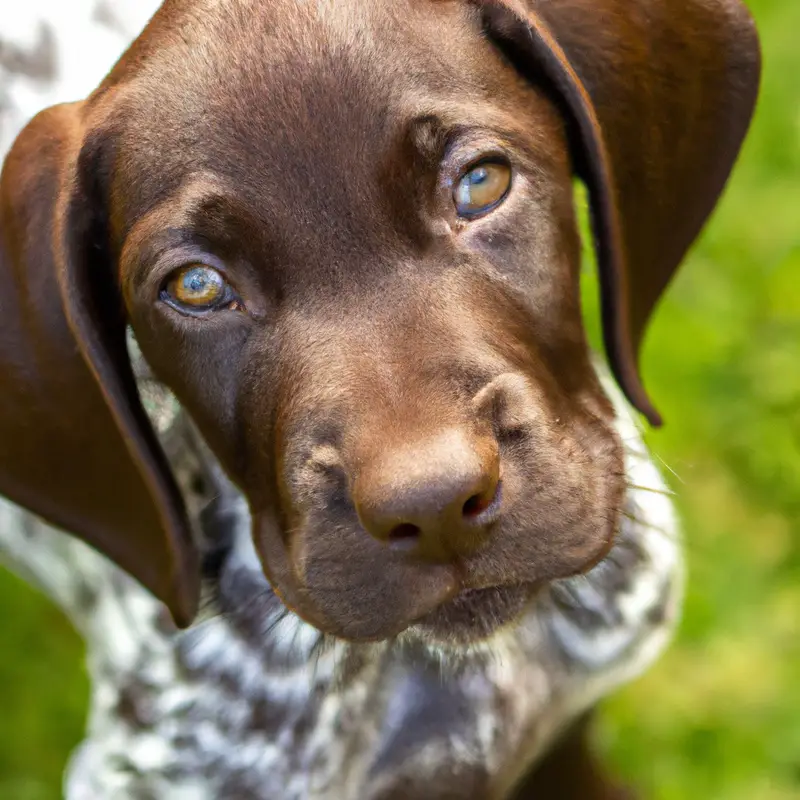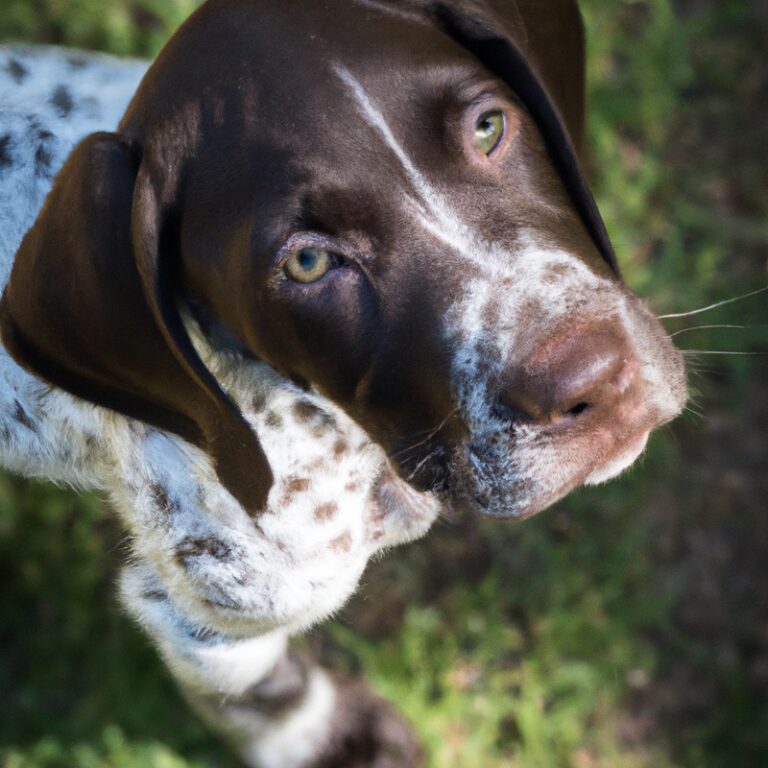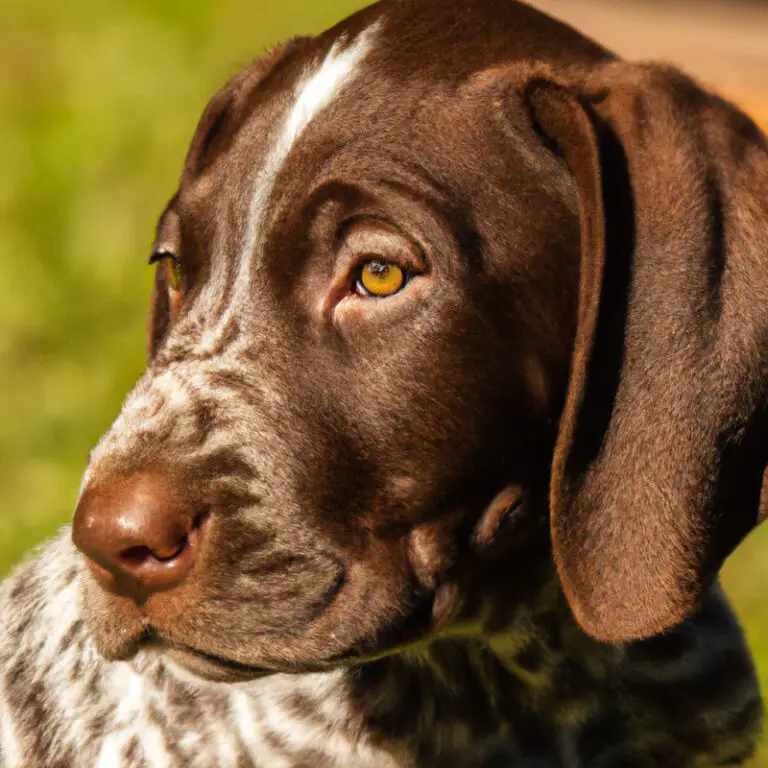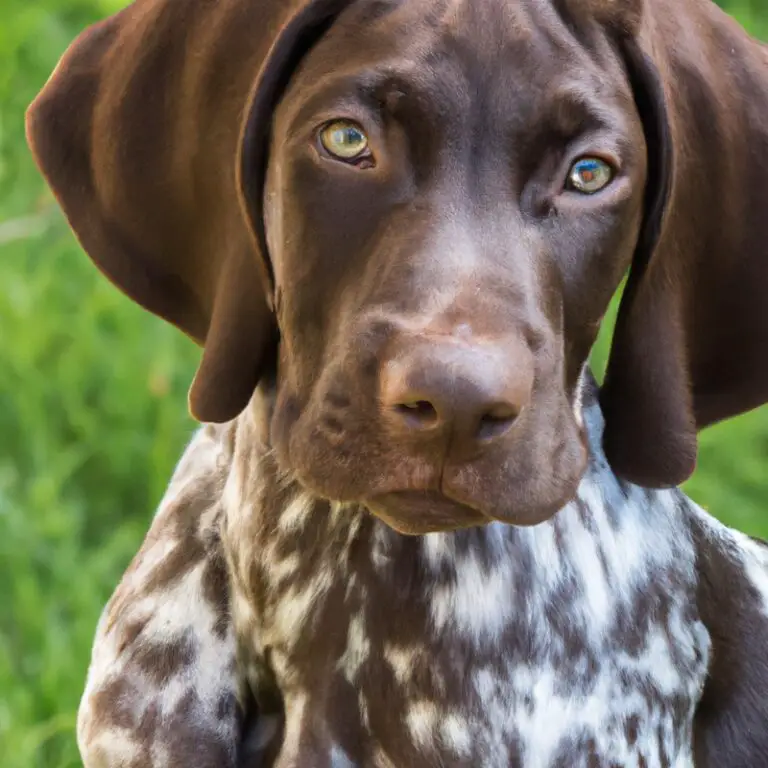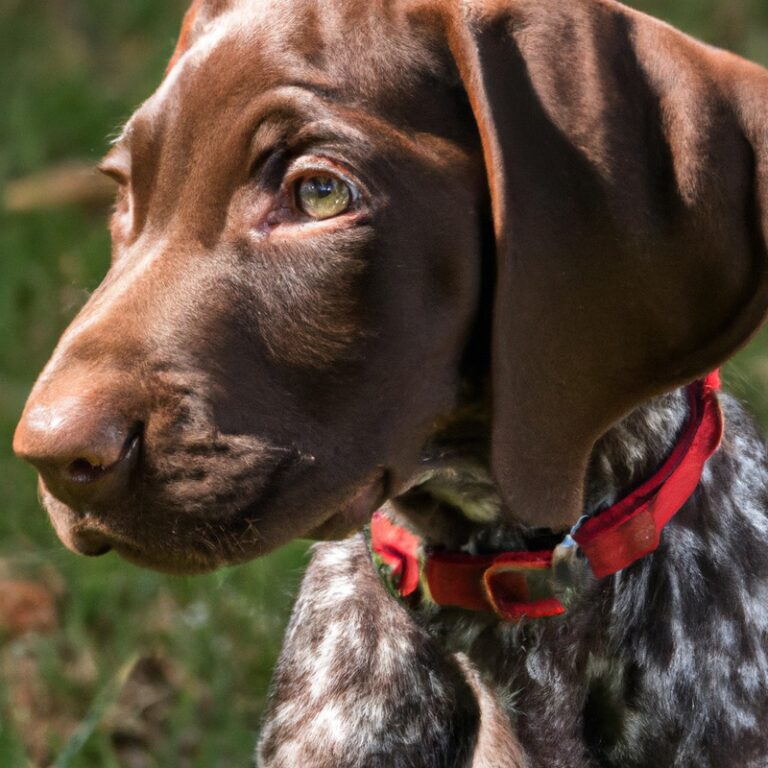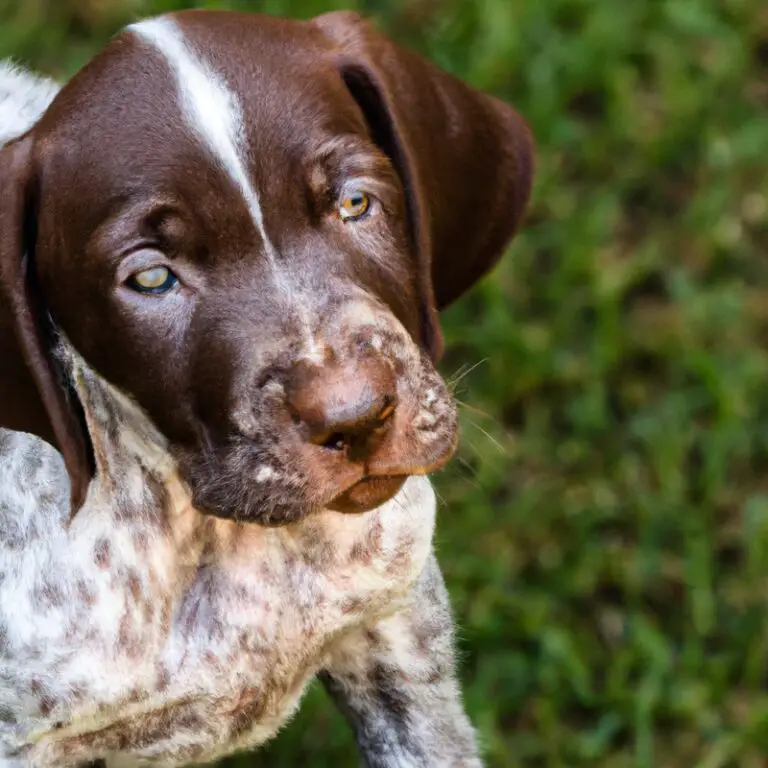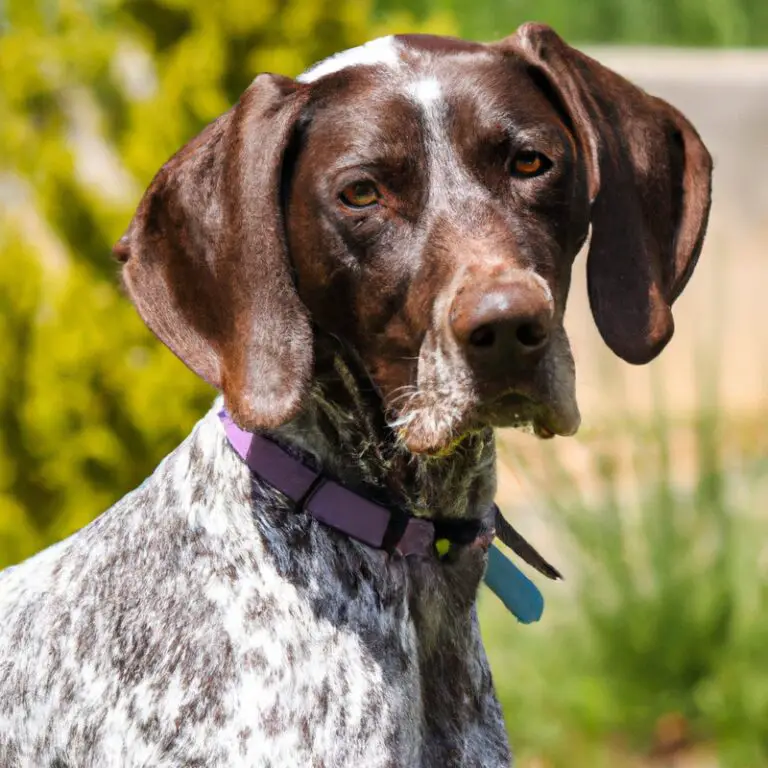Are German Shorthaired Pointers Good With Other Pets Like Birds Or Reptiles?
Key Takeaways:
- German Shorthaired Pointers generally have a strong instinct to hunt and may not be compatible with birds or reptiles as pets.
- Early socialization and training can help German Shorthaired Pointers coexist with other pets, but individual temperament varies.
- It is important to closely supervise interactions between German Shorthaired Pointers and small pets to ensure safety.
- Some German Shorthaired Pointers may develop tolerance or even friendship with birds or reptiles when introduced and supervised properly.
Introducing German Shorthaired Pointers to other furry friends can be like introducing two different worlds. Are they natural companions or potential adversaries?
As a proud German Shorthaired Pointer owner myself, I can confidently delve into this compatibility guide.
By understanding their nature, we’ll uncover the factors to consider when bringing GSPs to a household with birds or reptiles. But worry not, because I’ll also offer tips on successfully introducing them.
Of course, potential challenges may arise, but fear not! We’ll explore solutions to keep the peace.
And if you’re looking for alternative pets for GSP owners, I’ve got you covered. So, let’s dive into this fascinating world of German Shorthaired Pointers and their interactions with other pets!
| Pets | German Shorthaired Pointers |
|---|---|
| Birds | No |
| Reptiles | No |
German Shorthaired Pointers and Other Pets: A Compatibility Guide
Understanding the Nature of German Shorthaired Pointers
Understanding the Nature of German Shorthaired Pointers is key to having a happy and harmonious relationship with these dogs. One thing you need to know about them is that they are highly energetic and require lots of exercise.
They love to run, swim, and play, so be prepared to provide them with plenty of physical activity.
German Shorthaired Pointers are also very intelligent. This means they require mental stimulation and training to keep them engaged and prevent them from getting bored.
They excel in activities like obedience training, agility, and tracking.
Another important aspect to understand is their strong hunting instinct. As hunting dogs, they have an inborn desire to chase and retrieve prey.
While this makes them excellent hunting companions, it also means that they may not be compatible with small animals like birds or reptiles that could trigger their hunting instincts.
Additionally, German Shorthaired Pointers are generally friendly and sociable towards people and other dogs. They enjoy the company of their human family and tend to get along well with other pets when properly introduced and socialized from an early age.
Understanding the nature of German Shorthaired Pointers will help you provide them with the right environment, training, and stimulation they need to thrive as well as create a harmonious relationship with them.
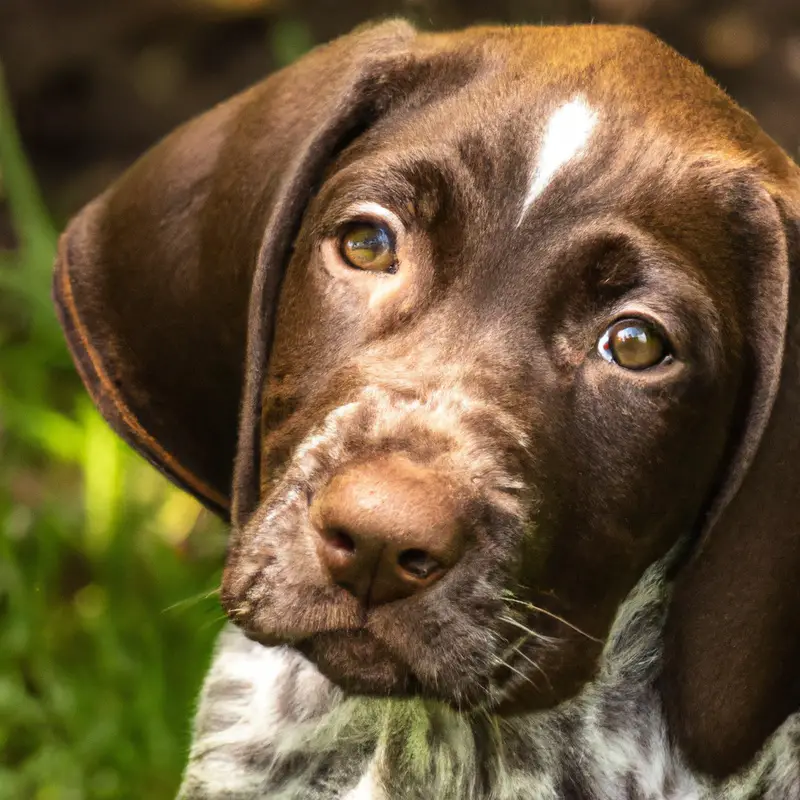
Factors to Consider when Introducing German Shorthaired Pointers to Birds or Reptiles
Introducing German Shorthaired Pointers to birds or reptiles can be a delicate process. Here are some important factors to consider:
- Temperament: German Shorthaired Pointers are hunting dogs bred for their prey drive. Their instinct to chase and capture small animals can make them a potential risk to birds or reptiles. It’s important to assess your dog’s temperament and prey drive before introducing them.
- Socialization: Proper socialization is crucial for your German Shorthaired Pointer to coexist peacefully with birds or reptiles. Gradual exposure and positive reinforcement can help them understand and respect other animals’ boundaries.
- Training: Basic obedience training is essential. Commands like “leave it” or “stay” can be lifesavers when it comes to preventing conflicts between your dog and other pets. Consistency and positive reinforcement are key.
- Supervision: Always supervise interactions between your German Shorthaired Pointer and birds or reptiles. Even a well-trained dog can have instincts that override their training. Being present can help prevent any potential accidents.
- Separation: If you’re unable to closely supervise, it’s best to keep the pets separate for everyone’s safety. Create secure enclosures or designated areas to prevent any incidents or escapes.
Tips for Introducing German Shorthaired Pointers to Birds or Reptiles
When introducing German Shorthaired Pointers to birds or reptiles, it’s important to proceed with caution and take some necessary steps to ensure a positive and safe environment for all pets involved.
- Supervision is key: Always supervise interactions between your German Shorthaired Pointer and other pets like birds or reptiles. This will allow you to intervene if any aggressive behavior or chasing occurs.
- Slow introductions: Start by keeping your German Shorthaired Pointer and the other pet in separate areas of the house. Gradually introduce them to each other while closely monitoring their reactions. You can start with short, supervised visits, gradually increasing the duration over time.
- Positive associations: Encourage positive associations by rewarding your German Shorthaired Pointer with treats or praise whenever they exhibit calm and non-aggressive behavior around the birds or reptiles. This will help establish a positive and friendly relationship between them.
- Respect individual space: Ensure that each pet has its own designated space where they can retreat to if they feel uncomfortable or need some alone time. This will help prevent any potential conflicts or stress between them.
- Training and socialization: Prioritize training and socialization for your German Shorthaired Pointer. This will help them understand and follow commands, making it easier to manage their behavior around other pets.
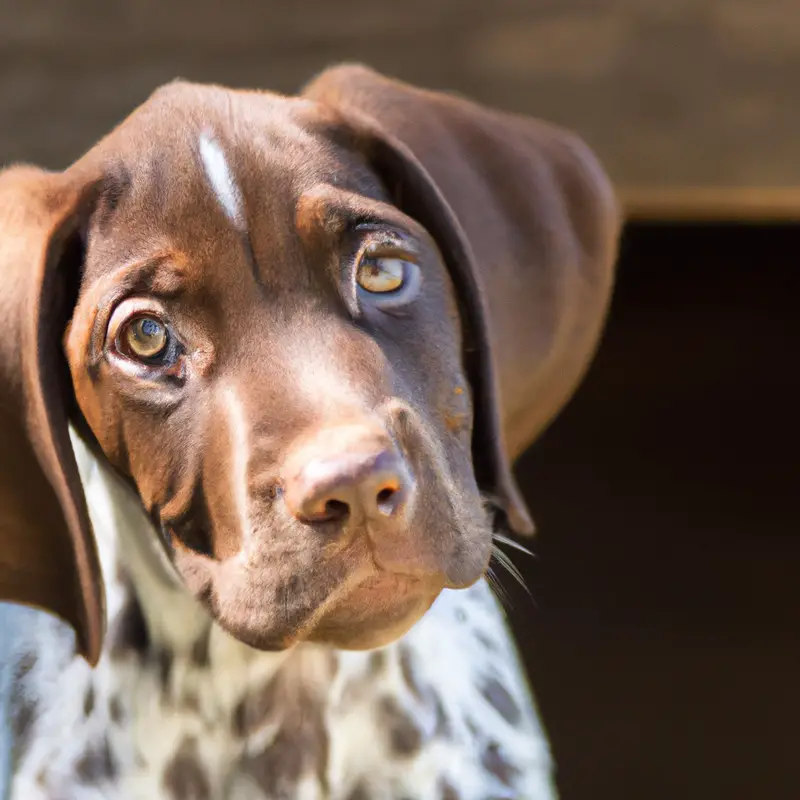
Potential Challenges and Solutions when Keeping German Shorthaired Pointers with Birds or Reptiles
Keeping German Shorthaired Pointers with birds or reptiles can present some challenges. One potential challenge is the strong prey drive of German Shorthaired Pointers.
These dogs have been bred for hunting and may see small birds or reptiles as prey.
This can create a risky situation for your other pets. To tackle this challenge, it is crucial to provide proper training and socialization to your German Shorthaired Pointer from a young age.
Teach them to differentiate between acceptable playmates and prey.
Additionally, closely supervise interactions between your dog and other pets to ensure everyone’s safety. Another challenge is the energy level of German Shorthaired Pointers.
These dogs are highly active and need plenty of exercise.
Birds or reptiles may not appreciate a dog that is constantly trying to play or interact with them. It’s important to create separate areas or enclosures for your birds or reptiles to ensure they have a safe space away from an enthusiastic dog.
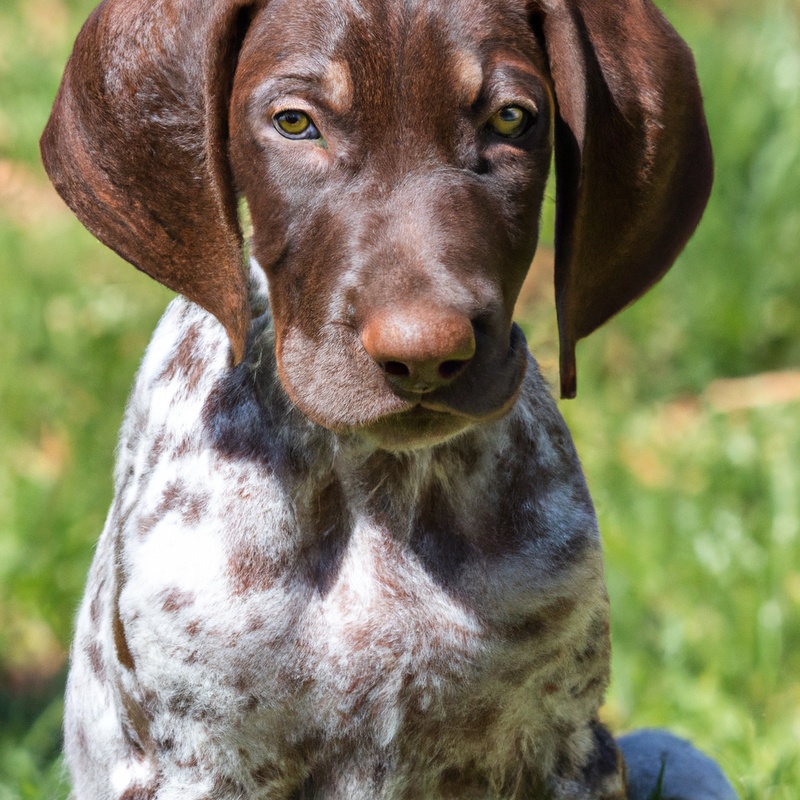
Alternative Pets for German Shorthaired Pointer Owners
If you’re a German Shorthaired Pointer owner and looking for alternative pets to add to your family, there are a few options that you may want to consider. Here are some alternative pets that can potentially get along well with your German Shorthaired Pointer:
- Cats: German Shorthaired Pointers generally get along well with cats, especially if they are introduced to each other at a young age. However, it’s important to supervise their interactions initially to ensure everyone’s safety.
- Other dogs: Since German Shorthaired Pointers are generally sociable and friendly, they often get along well with other dogs. However, as with any dog-to-dog interaction, proper introductions and gradual introductions are essential to establish compatibility.
- Small mammals: While German Shorthaired Pointers have a strong hunting instinct, it’s possible for them to coexist peacefully with small mammals like rabbits, guinea pigs, and hamsters. Always monitor interactions closely to make sure everyone is safe.
Final Thoughts: German Shorthaired Pointers and Other Pets
Final Thoughts: German Shorthaired Pointers and Other Pets So, after examining the compatibility of German Shorthaired Pointers with various pets, here are a few key takeaways to keep in mind.
- Supervision is crucial: When introducing a German Shorthaired Pointer to other pets, it’s essential to supervise their interactions closely, especially at first. This will help prevent any potential conflicts or accidents and ensure the safety of all animals involved.
- Early socialization is beneficial: Start socializing your German Shorthaired Pointer with other pets from a young age. This will help them develop positive associations and good behavior around other animals, making it easier for them to coexist peacefully.
- Individual personalities matter: Remember that every pet, including German Shorthaired Pointers, has its own unique personality. Some may be more tolerant and accepting of other animals, while others may have a more dominant or prey-driven nature. Assess your GSP’s temperament and consider it when introducing them to other pets.
- Preparation and gradual introductions: Before bringing home a new pet, take the time to prepare your German Shorthaired Pointer for the arrival. Creating a safe and separate space for the newcomer and gradually introducing them under controlled circumstances can help foster a positive and harmonious relationship.
Final Verdict
It is crucial to understand the nature of German Shorthaired Pointers and consider various factors when introducing them to birds or reptiles. With proper preparation and guidance, it is possible for these energetic dogs to coexist peacefully with other pets.
Implementing tips such as gradual introductions, supervised interactions, and providing separate spaces can significantly increase the chances of a harmonious relationship.
However, it is important to acknowledge that challenges may arise, and it is necessary to address them promptly with patience and consistent training. If the compatibility seems uncertain, considering alternative pets may be a wise decision.
By considering these factors and taking necessary precautions, German Shorthaired Pointer owners can create a positive and enjoyable environment for both their dogs and other pets.
Through expert advice and practical insights, this guide aims to equip readers with information to make informed decisions and foster harmonious relationships between German Shorthaired Pointers and other pets.

